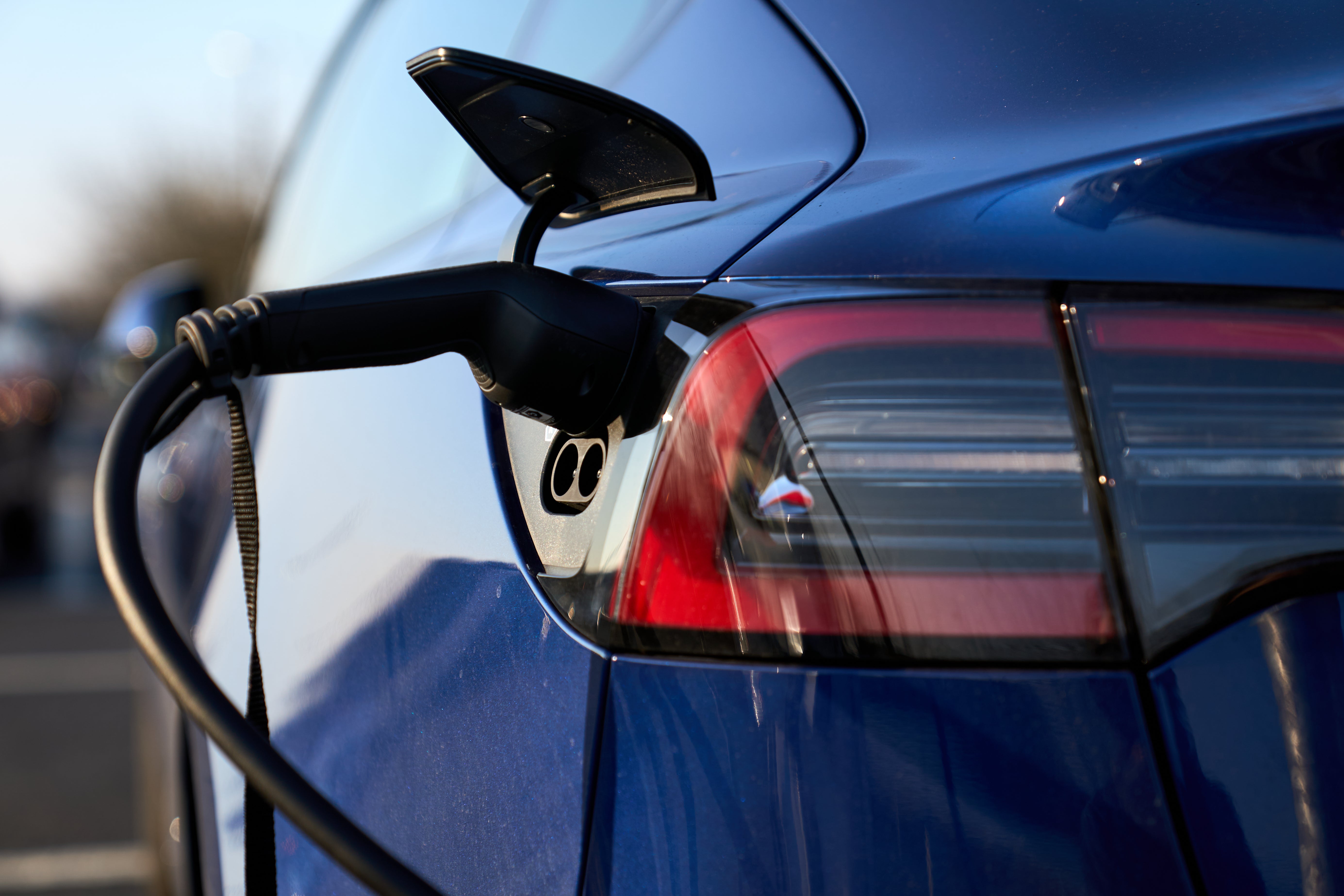Cost to rapid charge an electric car rises by a fifth in eight months
RAC analysis found that the average price of using a public rapid charger has increased by nearly 8p per kilowatt hour since September.

Your support helps us to tell the story
From reproductive rights to climate change to Big Tech, The Independent is on the ground when the story is developing. Whether it's investigating the financials of Elon Musk's pro-Trump PAC or producing our latest documentary, 'The A Word', which shines a light on the American women fighting for reproductive rights, we know how important it is to parse out the facts from the messaging.
At such a critical moment in US history, we need reporters on the ground. Your donation allows us to keep sending journalists to speak to both sides of the story.
The Independent is trusted by Americans across the entire political spectrum. And unlike many other quality news outlets, we choose not to lock Americans out of our reporting and analysis with paywalls. We believe quality journalism should be available to everyone, paid for by those who can afford it.
Your support makes all the difference.Rapid charging an electric car has become a fifth more expensive in eight months due to soaring energy prices, new figures show.
RAC analysis found that the average price of using a public rapid charger in Britain increased from 36.7p per kilowatt hour (kWh) in September last year to 44.6p per kWh this month.
This has added £4 to the typical cost of completing an 80% rapid charge of a family-sized EV (electric vehicle) with a 64kWh battery.
The RAC attributed the increase to a 65% spike in the wholesale cost of electricity, which was driven by surging gas prices.
The motoring services firm said charging an EV is still “excellent value” compared with refuelling a petrol or diesel car.
It costs around 10p per mile to use a rapid charger, up from 8p last September.
Over the same period the per mile cost of filling a petrol car has soared from 15p to 19p, with the price for diesel models rising from 16p to 21p, according to the analysis.
Demand for electric cars has soared in recent months.
The Society of Motor Manufacturers and Traders anticipates that plug-in cars such as pure electrics and plug-in hybrids will account for more than a quarter of the new car market by the end of the year.
There’s no doubting that charging an EV still represents excellent value for money compared to filling up a petrol or diesel car
RAC spokesman Simon Williams said: “Just as the price that drivers of petrol and diesel cars pay to fill up at the pumps is driven by fluctuations in the world oil price, those in electric cars are affected by gas and electricity prices.
“But while electric car drivers may not be immune from the rocketing price of wholesale energy – most notably gas, which in turn dictates the cost of electricity – there’s no doubting that charging an EV still represents excellent value for money compared to filling up a petrol or diesel car.”
Mr Williams said it is “totally unfair” that EV drivers who cannot charge at home because they do not have off-street parking pay four times more tax for electricity when using public chargepoints.
VAT on domestic electricity is 5% whereas motorists using on-street chargers pay 20%.
“Given the cost-of-living crisis, it’s surely only fair that everyone pays the same level of VAT no matter where they buy their electricity from,” Mr Williams added.
Former Top Gear presenter Quentin Willson, founder of the FairCharge campaign to remove barriers to the transition to electric cars, said: “Keeping a watch on charging prices is essential to make sure the electricity for charging up EVs never gets close to the cost of filling up with diesel.
“EV drivers need free-to-access data on charging prices across the country. And charging operators need to know that everybody is watching.”